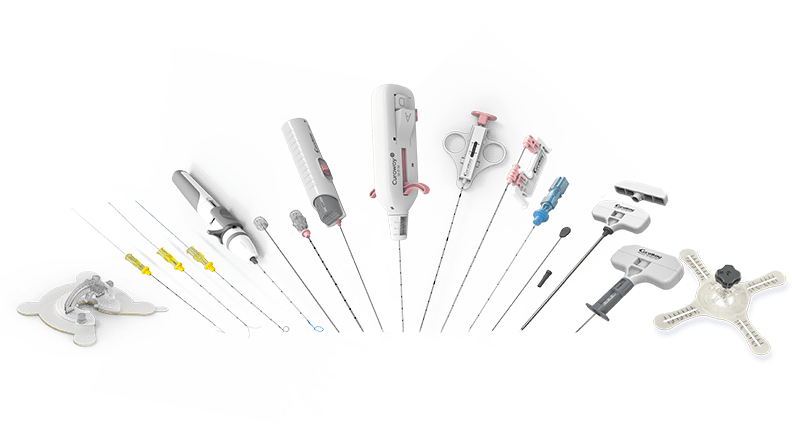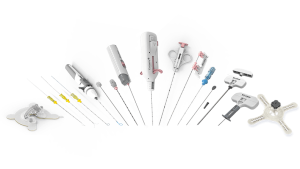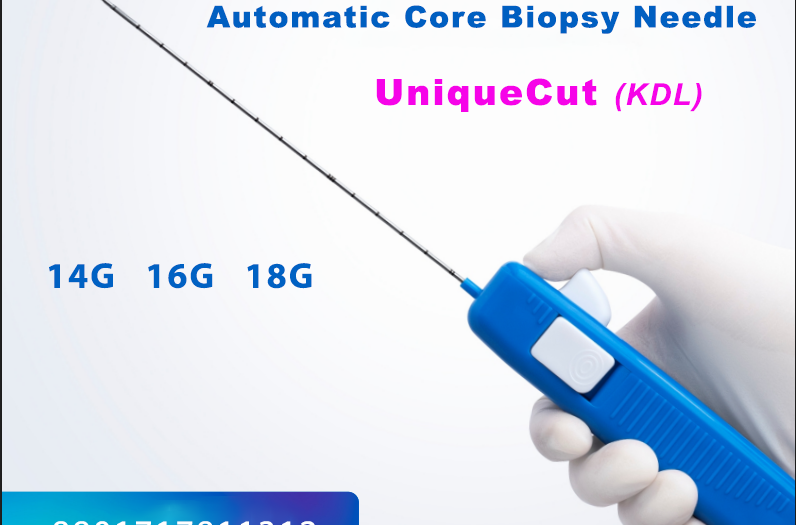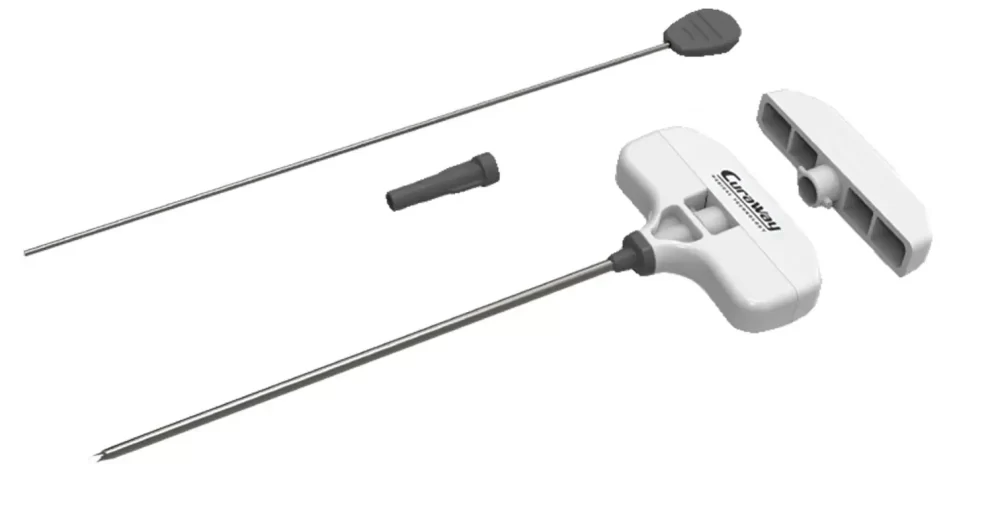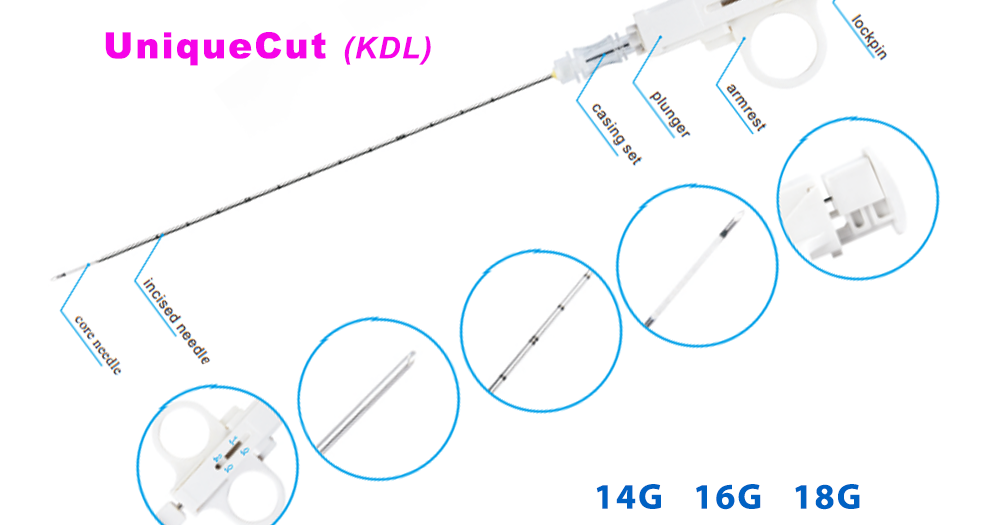Biopsy Needle Overview
A biopsy needle is a specialized medical tool used to extract tissue samples from the body for diagnostic analysis. This minimally invasive procedure is essential for diagnosing diseases such as cancer, infections, or inflammatory conditions by examining tissue or cells under a microscope.
Types of Biopsy Needles
- Core Biopsy Needle:
- Designed to obtain a small cylinder or “core” of tissue.
- Typically used for diagnosing tumors in the breast, liver, prostate, and kidney.
- Provides high-quality samples for histological examination.
- Fine Needle Biopsy Needle (FNB):
- Also called fine needle aspiration (FNA).
- A thin, hollow needle is used to extract cells or fluid from a lesion or mass.
- Commonly used for thyroid, lymph node, and lung lesions.
- Vacuum-Assisted Biopsy Needle:
- Uses suction to extract tissue samples.
- Often employed in breast biopsies to retrieve multiple samples in one insertion.
- Chiba Needle:
- Thin and flexible needle often used for soft tissue biopsies and cytological aspirations.
- Tru-Cut Needle:
- A spring-loaded device used for obtaining larger core tissue samples.
- Coaxial Biopsy Needle:
- Allows multiple biopsies through a single puncture.
- Common in CT- and ultrasound-guided biopsies.
Biopsy Needle Procedure
The procedure for using a biopsy needle varies based on the target tissue and guidance technology:
- Preparation:
- Patient history and imaging studies are reviewed to locate the target area.
- Local anesthesia is administered to minimize discomfort.
- Insertion:
- The biopsy needle is inserted into the target site. The insertion may be guided by imaging technologies like ultrasound, MRI, or CT.
- Tissue Collection:
- A small sample of tissue or fluid is collected.
- Post-procedure:
- The site is cleaned and dressed. Patients are usually monitored briefly for complications such as bleeding or infection.
Guided Biopsy Techniques
- Ultrasound-Guided Biopsy Needle:
- Real-time imaging ensures precision in targeting soft tissue masses or organs.
- Common for breast, liver, and thyroid biopsies.
- MRI-Guided Biopsy Needle:
- High-resolution imaging helps in targeting lesions in the brain, prostate, or breast.
- Often used for cases requiring extreme precision.
- CT-Guided Biopsy Needle:
- Used for deep tissue or hard-to-reach areas like the lungs and abdomen.
- Provides excellent spatial accuracy.
Uses of Biopsy Needles
- Diagnosing cancers (e.g., breast, prostate, lung, liver).
- Identifying infections and inflammatory conditions.
- Evaluating unexplained masses or abnormalities.
- Monitoring treatment responses in certain cancers.
Biopsy Needle Sizes
- Needle sizes range from 14G to 25G, with the gauge inversely related to the needle diameter.
- Fine needle biopsy typically uses smaller sizes (22G to 25G), while core biopsies use larger needles (14G to 18G).
Materials Used in Biopsy Needles
- Made from high-grade stainless steel for durability and biocompatibility.
- Some needles have coatings, such as silicone, to reduce friction and patient discomfort.
- Advanced models incorporate carbon or titanium to enhance flexibility and precision.
Biopsy Needle Technology
- Spring-Loaded Mechanisms: Ensures precise and quick tissue extraction.
- Echogenic Markers: Improves visibility during ultrasound-guided procedures.
- Single-Use vs. Reusable Needles: Many needles are now designed for single-use to minimize infection risks.
- Smart Biopsy Systems: Emerging technologies integrate AI and robotics for better accuracy and efficiency.
Cost of Biopsy Needles
- The cost depends on the type, material, and technology.
- Fine needle biopsy needles: $10 to $50 per unit.
- Core biopsy needles: $50 to $300 per unit.
- Advanced vacuum-assisted or guided systems can cost significantly more.
Key Features of Biopsy Needles
- Sharp and durable tips for precise penetration.
- Ergonomic designs for clinician comfort.
- Compatibility with imaging modalities like ultrasound, MRI, and CT.
- Sterility and safety features to reduce infection risks.
Applications of Biopsy Needles
- Oncology: Detecting and staging cancer.
- Radiology: Imaging-guided biopsies for precise diagnosis.
- Pathology: Sampling tissues for microscopic examination.
- Surgery: Pre-operative tissue analysis.
- Gastroenterology: Liver and pancreatic tissue sampling.
- Pulmonology: Diagnosing lung abnormalities or infections.
Biopsy needles are indispensable tools in modern medicine, enabling accurate and early diagnosis of various conditions. Advances in materials, technology, and guidance systems continue to improve their efficiency, safety, and patient comfort.
 Contact
Contact
Unique Medi Trade



